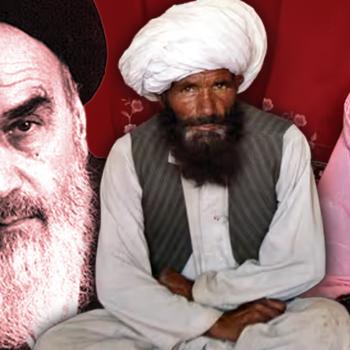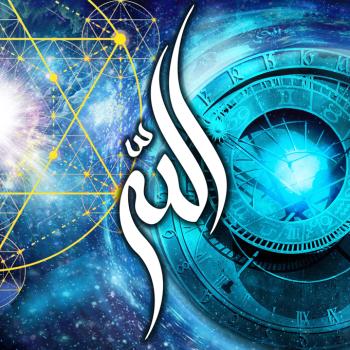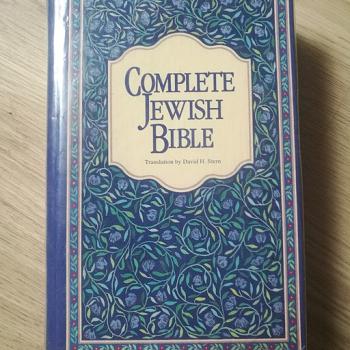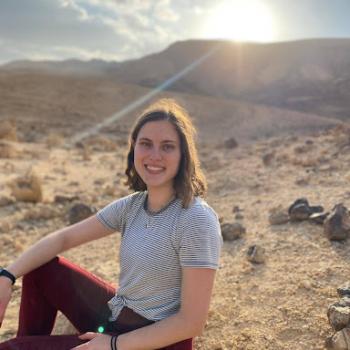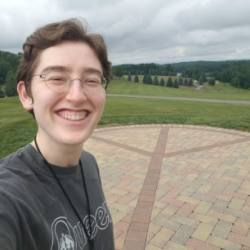By Julia Spiegel, fourth year rabbinical student
Parashat Tzav Leviticus 6:1-8:36
The right to free speech, the right to a fair trial, the right to protest, and freedom of expression. I have been thinking about rights and freedom because of the crackdowns on civil liberties happening around us, filling my newsfeed. Not new but intensified, shifting shape. Watching the footage of Tufts doctoral student Rumeysa Ozturk be picked up by ICE in Somerville a few weeks ago makes me wonder what ground I’m standing on.
Robert Cover, in his essay, “Obligation: A Jewish Jurisprudence of the Social Order” argues that the key word in Western society is “rights.” The concept of a right is built upon a shared myth which posits that “free and independent if highly vulnerable beings…voluntarily trade a portion of their autonomy for a measure of collective security.” I want to live in a society where all of us – independent and highly vulnerable – trade a portion of our autonomy for collective security. But this isn’t the reality.
Cover suggests that Judaism, too, has a key word and a myth that stands behind it. The word is mitzvah, obligation, and the myth is Sinai: the receiving of the Ten Commandments. Instead of the individual being the nucleus of the social and legal structure, our tradition centers unity through devotion to that which is beyond us.
In the Jewish calendar, we are at the precipice of freedom, zman cheruteinu – the time of our freedom – as we gear up to retell the story of our people’s release from Egyptian slavery at our Passover tables. Yet freedom in Judaism is different from Western society’s definition. The Torah tells us that Pharaoh must let the Israelites go in order that they can “serve G-d in the wilderness” (Exodus 7:16) Shortly after the Exodus the Israelites receive the Ten Commandments in the desert, entering into the covenant with G-d. We transition from slavery in Egypt to a posture of service to G-d.
The rabbis make this explicit in Pirkei Avot 6:2. Riffing on the verse in Exodus, “And the tablets were the work of God, and the writing was the writing of God, engraved upon the tablets” (32:16), they say, “Read not haruth [‘engraved’] but heruth [‘freedom’]. For there is no free man but one that occupies himself with the study of the Torah.” Our freedom is shaped by constraint, by taking instruction from something outside of ourselves, and by doing those instructions together over space and time.
So the truth is I’ve been thinking about freedom, and also obligation. And wondering: what might the framework of obligation – of a constrained freedom, a freedom designed to have us look within and outside of ourselves and orient towards all of it with a sense of responsibility – have to teach us about this moment?
This week’s parsha, Tzav, includes the verse, “אֵ֗שׁ תָּמִ֛יד תּוּקַ֥ד עַל־הַמִּזְבֵּ֖חַ לֹ֥א תִכְבֶּֽה”, “A perpetual fire shall be kept burning on the altar, not to go out” (Vayikra 6:6). One reason the fire should burn on the altar day and night is because there are many kinds of offerings made on it, like the daily tamid, or perpetual, offering. A perpetual fire for a constant offering. My teacher Rabbi Nehemia Polen writes, “The Tamid highlights a key insight of [Vayikra]: if a relationship is to thrive and overcome the inevitable crises that arise, it is important to make conciliatory efforts when things have gone awry. But it is even more crucial to cultivate the relationship when things are going well. This is best done with small, ongoing gestures of acknowledgment and appreciating…” In other words, the sacrifices that G-d instructs the Israelites to offer Them are G-d’s way of both saying what G-d needs, and modeling intimacy and commitment: Show up every day. Offer something. Make amends when things are frayed, but also take note of the times when things are going well, and mark them, too.
Alan Solomont wrote a powerful op-ed in the Globe last week about Ozturk’s detainment. He writes, “What happened to Ozturk, and many other international students, will not make Jewish students safer, nor is it fighting antisemitism. It is weaponizing legitimate Jewish pain and very real concerns about antisemitism to undermine civil liberties and the rule of law, and to attack one of the pillars of American democracy, our colleges and universities.” Ozturk’s detainment and others fracture us and separate us from each other. This is the opposite of how our tradition understands freedom, as a responsibility towards one another and to things greater than ourselves.
Passover is our zman cheruteinu, which leads us into covenant, and into daily commitment and intimacy. In this season of freedom, let us allow the spirit of Passover and the wisdom of the eish tamid to guide us towards taking care of one another, toward responsibility for each other, toward obligation. Let us commit to the idea of commitment: to our communities, our interpersonal relationships, to our neighbors.
Julia Spiegel is a 4th year rabbinical student at Hebrew College. She is currently serving as the Rabbinic Intern at Nehar Shalom in Jamaica Plain, and the Elissa Froman Rabbinic Intern at New Israel Fund Boston. Julia loves learning Torah from her cat Ruth, deep conversations with friends, salsa dancing, and is on the hunt for the best guacamole in town.




